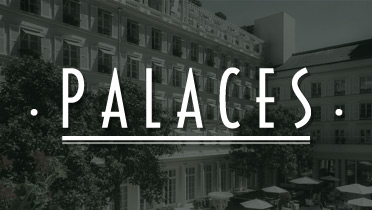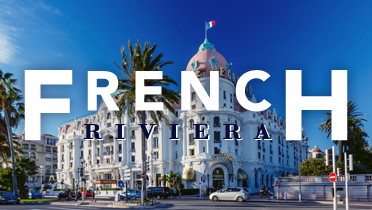Thailand, Phuket
Banyan Tree Phuket
At the tip of Bang Tao on the northwestern coast of Phuket Island, the Banyan Tree Phuket stretches over a tropical paradise. Ideally spread out around magnificent lotus ponds, surrounded by frangipani trees and coconut palms, the hotel’s 149 villas offer guests total calm and serenity. Isolated from each other by lush vegetation, these luxurious villas are elegantly decorated in Thai style. They’re all very spacious, and most of them have an outdoor Jacuzzi or a private swimming pool for greater privacy and tranquillity. The hotel’s accent on luxury and relaxation is reflected in its spa, a “veritable sanctuary for the senses dedicated to well-being,” where guests can receive a massage in the shade of the frangipanis. For dinner, 6 restaurants propose their exquisite specialties. Add to this an 18 hole golf course and an incomparable sense of hospitality, and the portrait of one of Phuket’s most luxurious establishments is complete.
Phuket
Phuket, Thailand’s largest island is located on the west coast of the country, in the Andaman Sea. Nicknamed the pearl of the south, its waters are known for their abundance of marine fauna which attract divers from all over the world. There are a multitude of pelagic fish, turtles, sea serpents and mammals like the Indian porpoise or the very rare dugong. Although the island is mountainous with a great many forests, it also possesses a multitude of sandy beaches, lagoons and lush tropical vegetation.
Formerly a commercial crossroads where Indian, Arab, Chinese and Portuguese merchants would come to stock up on tin and rubber, the island has become one of Thailand’s most popular tourist destinations. Although the majority of visitors flock to the beaches of Patong, Karon and Kata, the numerous Buddhist temples are also worth visiting, especially Wat Phra Thong with its half buried Buddha and the Wat Chalong temple with statues of two of Phuket’s most venerated monks. Another interesting site is the commemorative statue of Thep Krasattri and Thao Sisunthon, two sisters who drove the Burmese invaders out of Phuket. It’s the most famous monument on the island.
A temple of serenity
At the tip of Bang Tao on the northwest coast of the island, the Banyan Tree Phuket stretches out over a tropical paradise. The hotel consists of a group of villas built around magnificent lotus ponds and surrounded by coconut palms and frangipani trees. Immense banyan trees, symbolic of serenity and long life stand tall at the entrance to the property, hence the name of the hotel. This serenity can be felt as soon as you enter the luxurious but unostentatious lobby of stone, wood and water. The same spirit prevails throughout the property in which each villa is isolated from the others by a profusion of vegetation and small walls. There are no tall structures in order to give the space more intimacy and tranquility. Inside the villas, we once again find generous spaces, in addition to noble materials, precious wood and black stone for a luxurious Thai décor. Some villas have open air jacuzzis and others a private swimming pool, and for the two Double Pool villas, an infinity pool.
However, the true sensual sanctuary dedicated to well-being is the Banyan Tree Phuket Spa which offers massages that combine European and Thai techniques, either indoors or outdoors, under the subtle fragrance of the frangipani trees.
There’s a vast choice for dinner with six restaurants each with exquisite cuisine. The Watercourt specializes in Mediterranean food. The Saffron proposes Thai and other Asian dishes. Dietetic food is served at the Tamarind. The Banyan Café has an international menu. Shellfish is highlighted at the Sala Terrace, and subtle blends of French and Vietnamese cuisine are offered at The Tree. Add to all this a splendid piscine and an 18-hole golf course, and you have a full portrait of one of Phuket’s most luxurious hotels.
The Banyan Tree proposes a rare activity: meditation workshops. Very popular with tourists, they enable participants to get back in touch with their inner selves and therefore take full advantage of the benefits offered by the spa.
details about this hotel
Description:
Five stars / Member Banyan Tree Hotels & Resorts / Coconut groves / Four restaurants with Mediterranean, balanced, stylish & traditional Thai cuisine / Outdoor swimming pool / Spa / Fitness center / Yoga, meditation & Tai Chi classes / Library / Golf / Three tennis courts / Cooking classes / Many land & water sports / Elephant trekking / Activities for children
When open:
Open all year
Number of rooms and suites:
108 private villas
Prices:
Double occupancy from 218 euros
Nearest airport:
Phuket International Airport (HKT) - Phuket
Hotel details:
BANYAN TREE PHUKET
33 Moo 4 Srisoonthorn Road Cherngtalay
Thalang Phuket 83110
Thailand
details about this country
Flight time from Paris:
Approximately 10 hours
Time difference from Paris
:
+ 5 hours in summer / + 6 hours in winter
Climate:
Tropical climate with two seasons : the rainy season (June to October), during which in spite of heavy but short rainstorms, the weather remains sunny. In the north of the country, rain is more abundant and temperatures much cooler.
During the dry season (March to May), temperatures are very high.
In southern Thailand, the seasons are less distinct, and it can rain at any time of year.
It’s advisable not to visit Thailand between September and October as these months are known for their typhoons.
Necesssary travel documents for French nationals
:
Passport valid six months after return date.
No visa required for visits of less than 30 days (with a confirmed return flight)
No required vaccinations
Currency:
The baht (B)
Languages spoken
:
Thai, English and different regional dialects
Book by phone
+33 1 75 43 70 26 *Our reservation department is always happy to assist you via phone or via email. We are open Monday to Friday 9am to 18pm (GMT +1).
- Best rates guaranteed
- Upgrade upon availability
- No booking fees
- Instant confirmation























